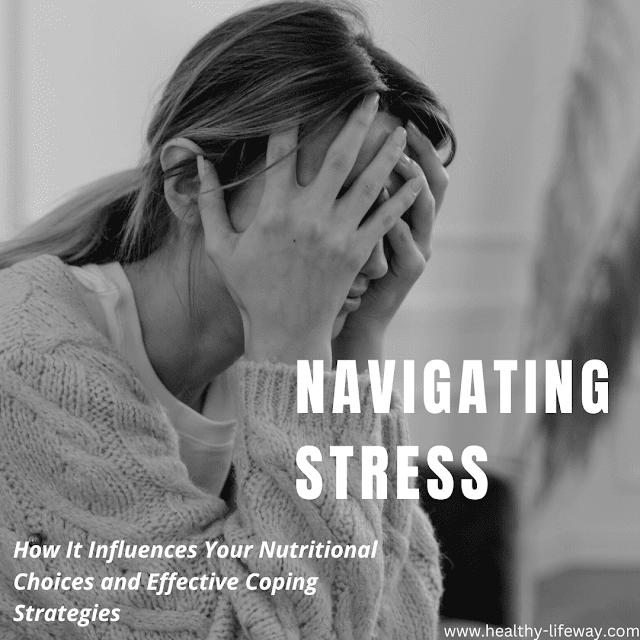Navigating Stress
 |
| Navigating Stress |
Navigating Stress
How It Influences Your Nutritional Choices and Effective Coping Strategies
Introduction:
In our contemporary society characterized by rapidity and high expectations, stress has become an inescapable aspect of our daily existence. It affects us physically, mentally, and emotionally, often leading to significant changes in our behavior, including our nutritional choices. Understanding the impact of stress on our dietary habits is crucial for maintaining optimal health and well-being. In this article, we will explore the relationship between stress and nutrition, delve into the reasons behind stress-induced eating patterns, and provide practical strategies for making healthy choices while effectively coping with stress.
The Stress-Nutrition Connection:
Stress triggers a complex cascade of physiological and psychological responses within our bodies, influencing our eating behaviors in several ways. For many individuals, stress can lead to emotional eating or the consumption of high-calorie comfort foods as a temporary escape from emotional distress. The release of stress hormones like cortisol can also stimulate cravings for sugary and fatty foods, contributing to unhealthy dietary patterns. Recognizing these tendencies is essential for developing strategies to overcome them.
The Impact of Stress on Food Choices:
Stress can lead to a range of dietary changes, depending on the individual. While certain individuals may encounter a diminished desire for food and a reduction in overall intake, others may seek solace in food as a source of comfort and engage in excessive eating. Stress eating often involves indulging in highly processed and calorie-dense foods, which can negatively impact our health. These patterns, if left unaddressed, can lead to weight gain, nutrient deficiencies, and other health complications.
Strategies for Healthy Coping:
a. Mindful Eating: Developing awareness around your eating habits and practicing mindful eating can help you regain control over stress-induced food choices. Pay attention to physical hunger and fullness cues, savor each bite, and choose nourishing foods that support your well-being.
b. Stress Management Techniques:
Instead of turning to food as a coping mechanism, explore alternative stress management techniques. Engage in regular physical activity, practice relaxation exercises like meditation or yoga, or pursue hobbies and activities that bring you joy and reduce stress levels.
c. Nutrient-Rich Foods:
Opt for whole, nutrient-dense foods that provide sustained energy and support your body's nutritional needs. Incorporate plenty of fruits, vegetables, lean proteins, whole grains, and healthy fats into your meals to promote overall well-being and resilience to stress.
d. Emotional Support:
Seek emotional support from loved ones, friends, or professionals to address the underlying causes of stress. Building a strong support system can help you manage stress more effectively and reduce the reliance on food for comfort.
e. Meal Planning and Preparation:
Planning and preparing meals in advance can minimize the temptation to make impulsive and unhealthy food choices when stress strikes. Having nutritious meals readily available can alleviate the stress associated with deciding what to eat and ensure that you maintain a balanced diet even during challenging times.
Conclusion:
Stress can significantly impact our nutritional choices, leading to detrimental effects on our health and well-being. By recognizing the connection between stress and eating patterns, we can proactively adopt strategies for healthy coping. By practicing mindful eating, implementing stress management techniques, prioritizing nutrient-rich foods, seeking emotional support, and incorporating meal planning, we can maintain a balanced diet and mitigate the adverse effects of stress on our nutritional choices. Remember, managing stress is not just about nourishing our bodies but also nurturing our overall well-being.







Post a Comment